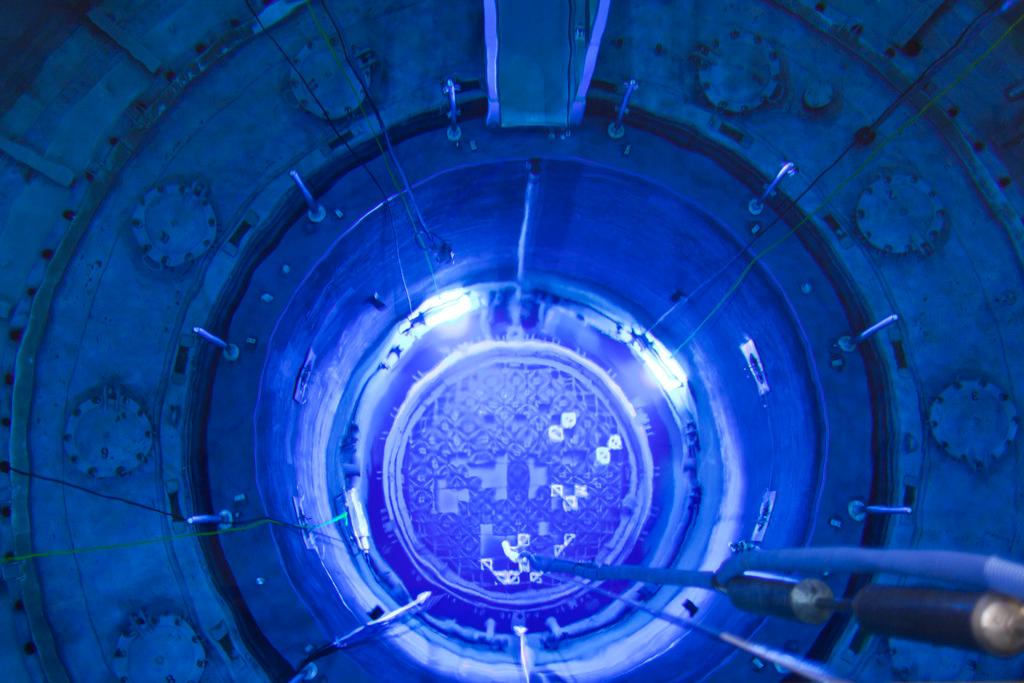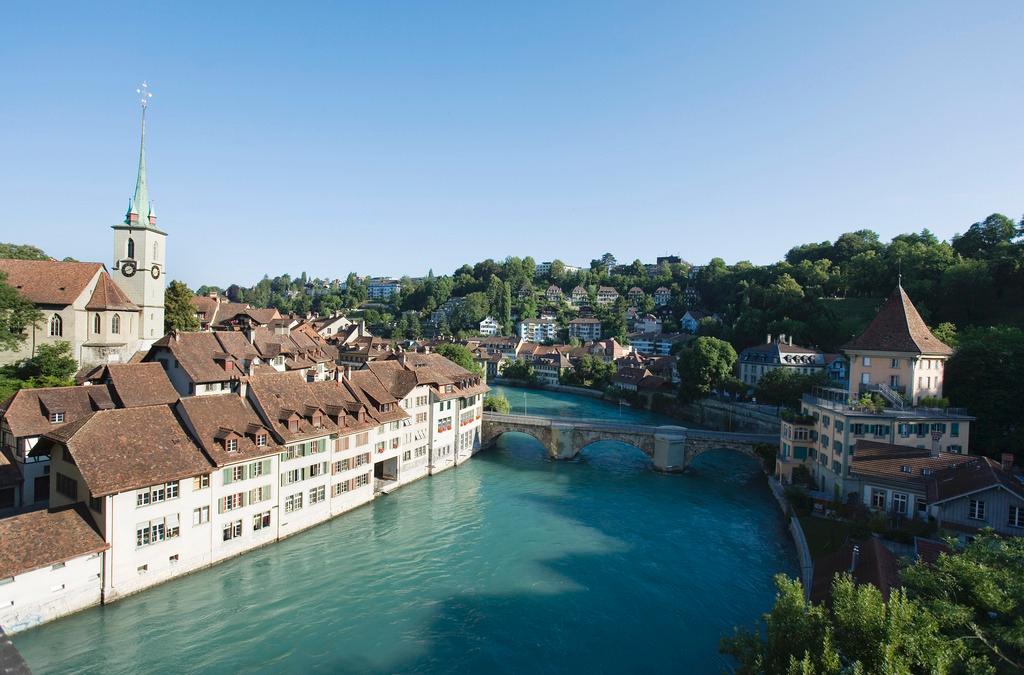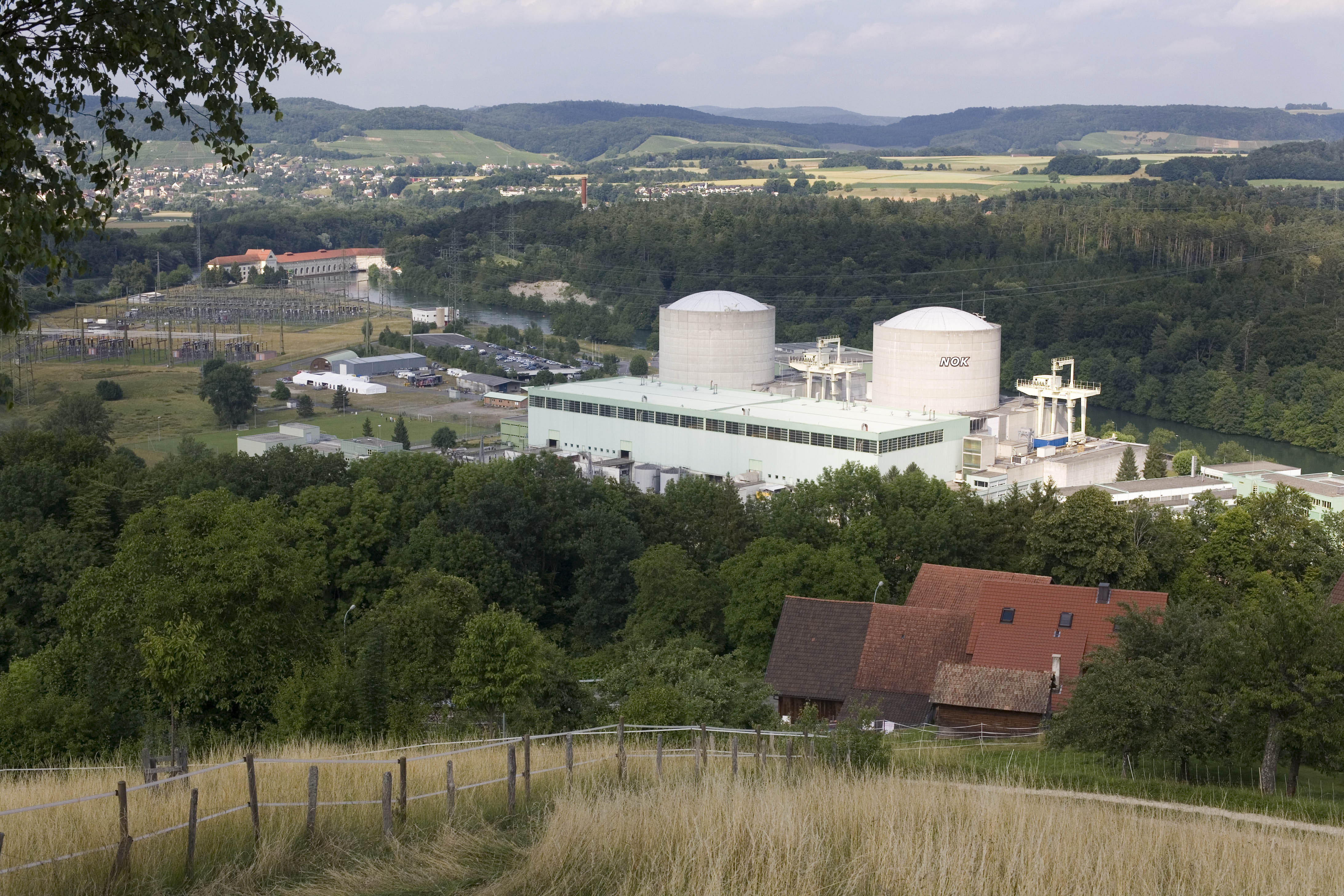Geneva alarmed by ageing French nuclear plant

The Geneva authorities have outlined their legal complaint against the 43-year-old Bugey nuclear power plant in neighbouring France, which they claim “endangers lives and pollutes water”. A long legal battle is expected.
“Bugey: a major risk for Geneva”. The headline and the main photograph of the nearby French nuclear plant on the front page of Tuesday’s Tribune de Genève newspaper could not be clearer.
According to the Swiss paper, last week’s decision by the Geneva city and canton authorities to file a criminal complaint over the ageing French nuclear reactor for “endangering lives and polluting water” sends a “clear message” to the French.
Bugey is one of France’s oldest nuclear power plants, which entered into service in 1972, situated about 70 kilometres from Geneva as the crow flies in the Ain department. When fully operational, the site creates about 4.5% of France’s electricity. It harnesses water from the Rhône River.
On Monday, the Geneva authorities invited the Swiss and French press to explain why they had decided to lodge a complaint on March 2.
They say the plant should be closed, as in the event of a major incident Geneva would be directly in the evacuation zone.
“The plant was built in the 1970s without any impact study. It faces a seismic risk, a risk of flooding, and an accumulated risk of earthquake and flooding,” Corinne Lepage, an environmental law specialist and a former French minister, told reporters.
She added that the concrete foundations of the plant were subject to leakage issues, and there were recurrent tritium leaks and cracks in the containment building.
“This is not a factory producing pots of yoghurt. Any incident would have catastrophic consequences,” she noted.
Constitutional obligation
This anti-nuclear position is nothing new for the Geneva authorities, who say they are acting in line with their new Constitution, which calls for action to “oppose nuclear power facilities, radioactive waste dumps and treatment centres on cantonal territory or in the neighbouring region”.
Back in 2012, Geneva officially objected to authorisation given to the French operator of Bugey, EDF, to create a nuclear waste depot at the site, but the complaint was rejected by the French government.
This time it’s different, says Lepage: “It’s an appeal to the judicial judge and not the administrative judge.”
The French-language newspaper Le Temps expects a “long legal battle ahead”.
The French nuclear safety authority (ASN) told the 20 Minutes newspaper that the safety of Bugey was “generally satisfactory”.
EDF meanwhile told Le Temps that ASN had carried out 35 inspections, and €160 million (CHF174 million) had been invested in safety at the plant. It added that certain nuclear plants could operate for many years, “up to 80”, like in the United States.
However, the vast majority of Swiss 20 Minutes readers who replied to an online survey seem unconvinced by these arguments: 83% of the 940 people who took part in the survey said they were worried about the Bugey plant.
Last weekend a French minister said it would close its ageing Fessenheim plant by the end of 2016. Located near Mulhouse in France, some 50 kilometres from Basel over the Swiss border, Fessenheim is one of the country’s oldest nuclear power plants and at the centre of a row with neighbouring Germany and Switzerland.
Fessenheim, located on a seismic fault line, has worried French, German and Swiss environmentalists for years.
Last Friday Berlin demanded that France close down Fessenheim following reports that a 2014 incident there was worse than earlier portrayed. France’s nuclear safety authority (ASN) said that safety at the plant was “overall satisfactory” but that the government’s energy policy “could lead to different choices” regarding the facility.
In September, French President François Hollande said Fessenheim, in operation since 1977, would not be shut this year, contrary to a 2012 campaign promise, because of delays in completion of a new plant in northern Flamanville.
France has promised to cut reliance on nuclear energy from more than 75% to 50% by shutting 24 reactors by 2025, while stepping up reliance on renewable energy.

In compliance with the JTI standards
More: SWI swissinfo.ch certified by the Journalism Trust Initiative













You can find an overview of ongoing debates with our journalists here . Please join us!
If you want to start a conversation about a topic raised in this article or want to report factual errors, email us at english@swissinfo.ch.